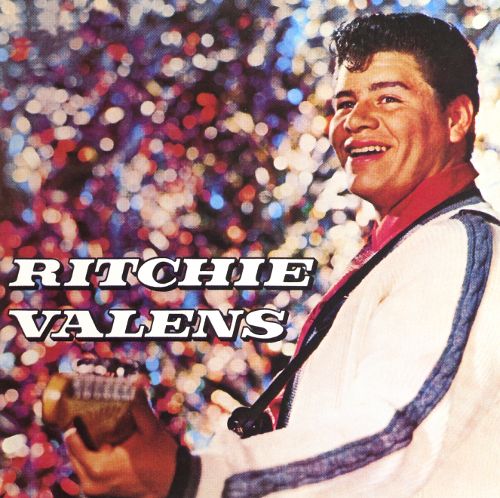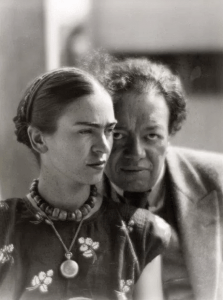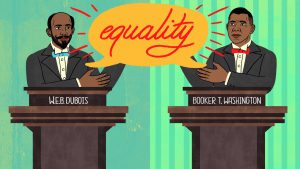It is the late 1950’s in southern California, and a young superstar named Ritchie Valens, whether he knows it or not, is about to change the culture of America forever. In a matter of eight months, the Hispanic student at San Fernando High School just became one of the biggest celebrity musicians of the day.1 After dropping out of school in order to record and tour full time, Richard Valenzuela was making phenomenal Rock N’ Roll music, both on stage and in the studio. While America quickly became obsessed with the undeniably talented teen, nothing could prepare them for his next release.
From the beginning, the odds were against young Richard. He was merely sixteen, and, as a young Latino, there were few opportunities for someone like him in the American mainstream music industry, let alone in Rock ’n Roll. He saw proof of this fact early in his career, facing prejudice and discrimination at every turn. He was even forced to change his name to Ritchie Valens in order to make it easier for his fans to pronounce—a compromise that gave way to controversy and anger from his family.2 Ritchie realized that, even though he was opposed to the changing of his name, it would be a smart move for him as a musician. But even after his family name was taken from him, he refused to let go of his heritage. In fact, it seemed that he tightened his grip.
Ritchie wanted to do something to pay tribute to his Latino culture. With the assistance of Bob Keane of Del-Fi Records, he decided he would combine the two worlds that he was now so heavily a part of, by turning the Spanish tune “La Bamba” into an upbeat rock song. Only knowing English, Ritchie had to learn the lyrics of the traditional Mexican folk song phonetically. After countless takes in the studio, he recorded the song on a two-track record with a second soon-to-be hit Oh, Donna.3
Ritchie released the track and promptly shook up America. Most people had no idea what the song was about, but, for one of the first times in modern music history, they didn’t care. The charismatic rhythm of the song combined with Ritchie’s unique voice; it was impossible to dislike it, and the song spread like wildfire, taking his career to new heights.
Seeing Ritchie perform was a spectacle only few Americans were graced with. His energy and impeccable guitar skills would engage the thousands of audience members from start to finish.4 While the crowd was swooning over every single song, there was nothing like that epic guitar riff that carries the tune of La Bamba.3 As soon as Ritchie’s guitar pick hit his strings, the fans simply could not contain themselves.

Unfortunately, Richard Valenzuela’s career was ended even quicker than it begun. Soon after his explosive rise to fame was sparked, and before he could finish his tour, Ritchie Valens was killed in a plane crash along with fellow artists Buddy Holly and The Big Bopper J.P. Richardson.6 The tragedy triggered nation-wide shock, and the day became known by many as “The Day The Music Died.”7
Although his life was ended much too early, perhaps it was this terrible fate that immortalized him in music history. His music and the rest of Valens’ amazing life inspired the film La Bamba, a timeless and classic film. Ritchie’s brave move in the release of “La bamba” inspired and enabled many other Hispanic artists to begin to make their way into the spotlight, making it much more than just a great song. We see the repercussions still today, through modern Latin Rock bands and all the sub-genres surrounding them, and will without a doubt continue to experience the fruits of the song for decades to come. Needless to say, American music and culture would not be the same without Richard Valenzuela’s audacious contributions.
- Encyclopedia of World Biography, 2004, s.v. “Ritchie Valens.” ↵
- Salem Press Biographical Encyclopedia, January 2017, s.v. “Ritchie Valens,” by Scot M. Guenter. ↵
- “‘La Bamba’ one of the 100 most important American musical works of the 20th century,” Broadcast Transcript. Weekend All Things Considered, NPR, July 15, 2000. ↵
- St. James Encyclopedia of Popular Culture, 2nd ed. “Valens, Ritchie (1941–1959),” Candida Taylor. ↵
- “‘La Bamba’ one of the 100 most important American musical works of the 20th century,” Broadcast Transcript. Weekend All Things Considered, NPR, July 15, 2000. ↵
- Robert Wright, “The Day The Music Died,” Aviation Safety, July 1, 2015. ↵
- “What Went Wrong On The Day Music Died?” Interview by Robert Siegel, Melissa Block, All Things Considered, NPR, February 3, 2009. ↵



163 comments
Jazmin Pizana
Great article! Growing up I remember my grandma would always listen to old songs which included La Bamba and would always watch the movie all the time. This story was truly tragic of how he died so young while he was on the cusp of making it big. This was a really interesting article and able to cover his life and success. Great job!
Jasmine Martinez
I had heard the song and never really knew or wondered who was behind it, but this article provided a lot of about that. He went for his dreams despite his family’s approval and I think that’s a lot of dedication. Although his life ended so suddenly and tragically, his music will continue to live on. Well written and overall a Great article!
Benjamin Voy
What an interesting story about a very interesting guy. I had no idea od the origins of ‘La Bamba’ but I definitely did not expect that it was sung by someone who couldn’t even speak Spanish. I was certain that the origins of the singer would have had a strong Spanish accent and not an american one! Its amazing that Ritchie defied all of his critics and rose to fame as fantastically as he did. Its just a shame it was so short lived. Great article
Christine Sackey
La Bamba is a great song that I even hear in our media today. I believe that it was incredibly smart to combine both of the Latin and American cultures. It was what set from apart from other artists at the time. It is also encouraging that he still went for dreams even though he family did not completely support him. Many people would not be able to handle that type of environment. Not only was he facing trouble in his personal life but also from the public. It is sad that his life ended so soon. I wonder what other amazing songs he would have come up with.
Abigale Carney
This was a very interesting article, I have never heard of the song La Bamba before this article. It is crazy how America dealt with color in the 20th century, having to change his name to be more “American” is very upsetting to me. He influenced many other races to pursue their musical dreams and was very inspiring. I learned a lot from this piece, great article!
Ezequiel De La Fuente
I enjoyed reading this Article. I knew of Ritchie’s death but I did not know of his name change. I love the song “La Bamba” and I agree that he made it shine through his recreation of it. Yes, he did have his time of fame and he is remembered through history and movies, but I don’t think that to this day we have very much diversity in the music business. I would love for that to change though.
Cherice Leach
This is a very well written article. I always loved the song La Bamba. I mean I practically grew up listening to it. I didn’t know the history behind the song though. It’s kind of sad that Richard had to change his name to a more American one at the time because Latinos weren’t as prominent in America as they are today. It’s also even more sad that he died at such a very young age. At least he left us with a great song before he passed.
Alondra Aviles
“La Bamba” continues to be one of my favorite movies, portraying struggle and success all in one with a fantastic arrangement of music. Ritchie Valens is a very authentic musician with an iconic song that is commonly known among many. His Latino heritage made his music more appealing yet was faced with a lot of persecution. The article was very well written and interesting. I enjoyed reading and learning a little more about Ritchie Valens as an artist and his rise to fame. His experience in the music industry can serve as an inspiration to other artist who want to pursue similar dreams but have the same struggles. Money, race, and fame.
Osman Rodriguez
I remember reading about Richie Valens a couple years back. He definitely pioneered a new phase in music when it came to the present day American music of that time. La Bamba is an iconic song, and one that is easily recognizable. It did sadden me to hear of how his career came to an end. I knew he wasn’t around anymore, but to leave this Earth in the manner he did and at the climax of his career, is disheartening.
Aaiyanna Johnson
Most of my knowledge of Ritchie Valens comes from the movie. I did not know that he had to change his name, although many musicians do. His music influenced many other Latin musicians. It would be nice to know what other hits he would have produced. I did not know that Buddy Holly was on the flight as well. It is a tragedy that they had to go so soon and so young.